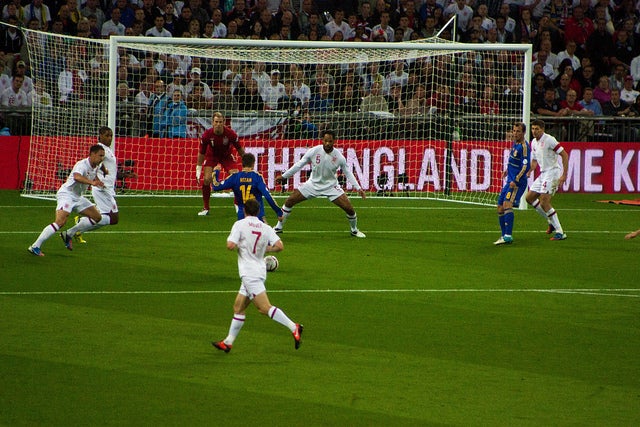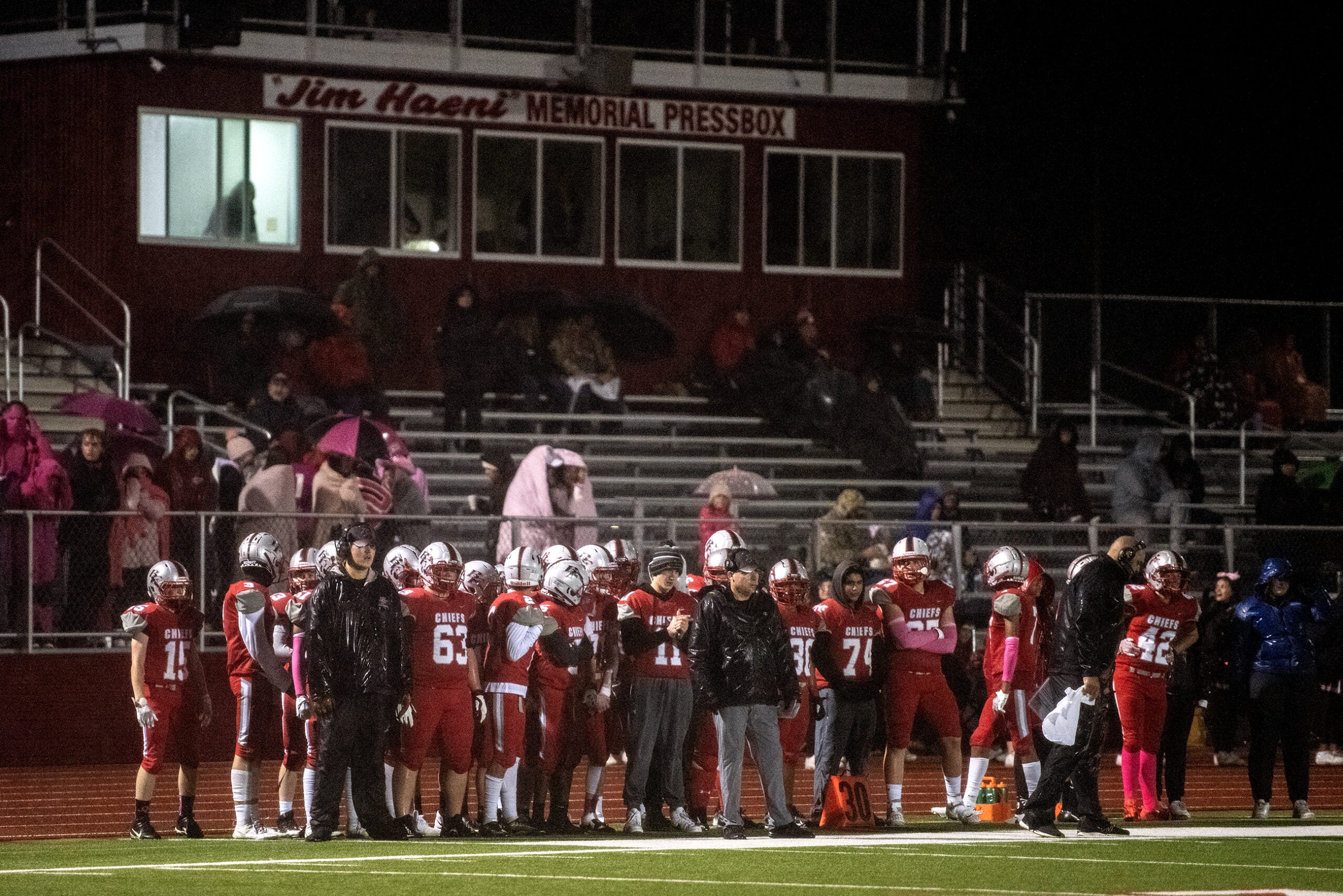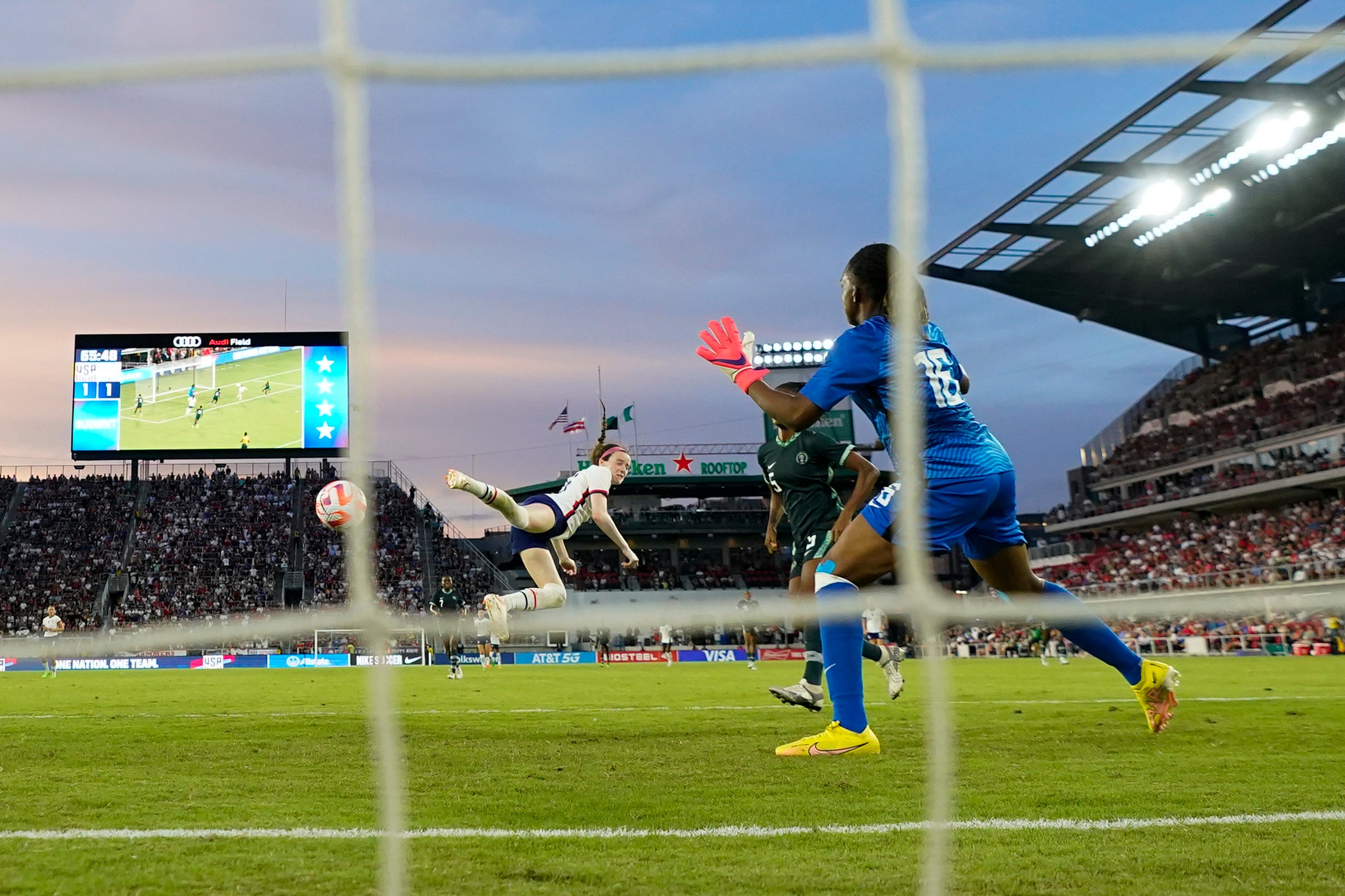A judge has approved a merger between AT&T and Time Warner that was being challenged by the federal government. We talk about what it means for consumers and future media mergers. Plus, with the World Cup getting underway, we dive into the language of soccer and what billions of people love about it.
Featured in this Show
-
Soccer Garners Worldwide Attention As World Cup Kicks Off
All it takes is a ball.
The ease of access to soccer makes it a sport that transcends borders, taking root in numerous nations, said Laurent Dubois, a professor of romance studies and history at Duke University, where he teaches a class on soccer politics.
“People have an amazing capacity to make this game their own, to make it feel like part of their culture,” Dubois said. “The way their players move, the way their players play — but also the stories people tell around the game are all very much local and at the same time, they’re very global in scope.”
Dubois is the author of “The Language of the Game: How to Understand Soccer,” in which he explores the ease of which the game travels around the globe. He talks about the design of the game, its rules and how to best watch it for maximum enjoyment, even attempting to answer the often confounding offsides rule.
While the sport has grown in popularity, especially among younger generations, it still loses its footing in the U.S. in a landscape dominated by football and basketball, Laurent said.
Talk of the game is seeping back into the fold now that the 2018 FIFA World Cup started Thursday. Russia dominated Saudi Arabia in a 5-0 match, kicking off the series to find the best team of 32 nations. Fans of the U.S. Men’s National Soccer team will have to find another country to root for, as the men failed to qualify for the World Cup.
Although two of his favorite teams are France and Belgium, Laurent said many people are watching Egypt’s team and its striker powerhouse Mohamed Salah.

Egypt’s Mohamed Salah smiles during Egypt’s official training on the eve of the group A match between Egypt and Uruguay at the 2018 soccer World Cup. Natacha Pisarenko/AP PhotoAnother benefit of the game Dubois points to is the ability soccer provides for a larger audience to rally around a particular player or team.
“The game just invited people to make allegiances across national boundaries,” he said. “In a sense, we’re like a lot of the rest of the world, and that means you have to choose a team.”
Another perk of the sport is its openness to all body types, Laurent said. While sports such as basketball and football might require more height or girth to have an upper hand, soccer doesn’t discriminate.
“There’s a kind of invitation that comes from that because when you watch athletes who look a little bit more like you or you can imagine being in their shoes, that does make a kind of connection between the fan and the athlete and the connection between playing and watching is important,” he said.
For all its draws, the World Cup has also garnered attention for being politicized and FIFA has faced criticism for corruption. Still, Dubois said the sport’s teams push back against that with players representing the margins of their own communities.
“There are these kinds of representatives of the county but that look very different, often in their backgrounds and in the way they are, than the political leaders in their countries,” he said.
In his book, Dubois also explores the stigmas women faced, particularly when the English Football Federation in the early 20th century banned their official play.
“Now obviously we’re in a different phase where it’s growing again, but the inequalities still persist as a result of having been held back earlier in the 20th century,” he said.
He said while there is a sense that Americans don’t see soccer as their national sport, the spotlight will be on North America as the U.S. will co-host, along with Canada and Mexico, the 2026 FIFA World Cup.
“It’s gong to be the largest geographical spread,” he said of the games set to take place in eight years. He also noted 48 instead of 32 teams will compete at that time, making the tournament also the largest in size.
“This is going to be kind of a huge thing after the Russia and Qatar tournaments and there’s going to be a lot to do to get ready for it,” he said.
-
Considering What's Next Following Ruling On AT&T-Time Warner Merger
A federal judge ruled this week that an $85.4 billion merger between AT&T and Time Warner could go through. We talk with a law professor who looks at antitrust law about what this means for consumers and competitors.
-
Soccer's Role In Global Culture
With the kickoff of the 2018 FIFA World Cup and news that the U.S. will co-host the 2026 championship, we dive into the world of soccer to learn more about the role of players and fans with our guest author. We also explore soccer’s history and its role in politics and culture around the world.
Episode Credits
- Rob Ferrett Host
- Chris Malina Host
- Breann Schossow Producer
- Michele Gerard Good Technical Director
- Laurent Dubois Guest
- Christopher Sagers Guest
Wisconsin Public Radio, © Copyright 2024, Board of Regents of the University of Wisconsin System and Wisconsin Educational Communications Board.




